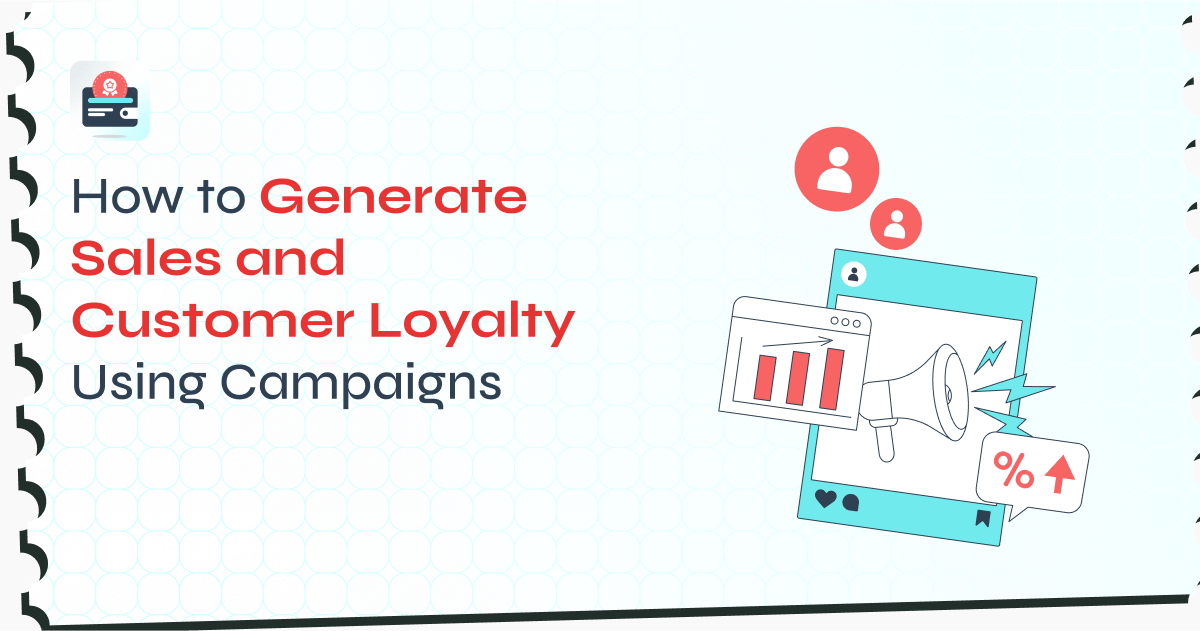
If you’re running a business—whether it’s online or offline—your main goals are probably to increase sales and keep your customers coming back for
more. One of the most effective ways to achieve both is by running smart, well-planned marketing campaigns.
In this blog, we will walk you through everything you need to know about how to generate more sales and
build long-term customer loyalty using campaigns.
What is a Marketing Campaign?
A marketing campaign is a set of organized activities and promotions that are
planned to achieve a specific business goal. This could be getting more sales, attracting new customers,
building brand awareness, or keeping existing customers engaged.
Marketing campaigns can take many forms, such as email offers, discount promotions, social media
giveaways, referral programs, or loyalty rewards.
When done right, campaigns can:
- Bring in new customers
- Increase the number of sales
- Make customers feel valued
- Encourage repeat purchases
- Build a strong and loyal customer base
Why Sales and Loyalty Go Hand in Hand
Many businesses focus only on getting sales. But if your customers don’t return, you’re constantly chasing
new ones, and that costs more time and money.
Building customer loyalty means people will keep buying
from you, recommend you to others, and trust your brand. Loyal
customers are more likely to:
- Spend more over time
- Forgive small mistakes
- Choose you over competitors
- Promote your business through word of mouth
That’s why it’s smart to create campaigns that not only increase sales but also build strong customer relationships.
Step-by-Step Guide to Generate Sales and Loyalty Using Campaigns
Let’s look at how you can plan and run campaigns that help you achieve both your goals.
1. Know Your Goal
Before starting any campaign, ask yourself:
- What do I want to achieve?
- Do I want to get more first-time buyers?
- Do I want repeat customers?
- Do I want to boost sales during a slow season?
Having a clear goal will help you choose the right type of campaign and track how well it works.
2. Understand Your Customers
The more you know about your customers, the better you can serve them. Learn things like:
- What products they like
- How often they shop
- What discounts or offers attract them
- Their age, location, and interests
You can get this information from:
- Google Analytics
- Shopify or other eCommerce platforms
- Customer surveys
- Purchase history
Understanding your customers allows you to personalize your campaigns, which makes people feel special and increases the chances of success.
3. Pick the Right Type of Campaign
Here are some campaign ideas that help drive sales and loyalty:
a) Discount Campaigns
Offer limited-time discounts or deals.
- Example: 20% off for 48 hours
- Tip: Give exclusive deals to loyal customers first
b) Loyalty Programs
Reward people for coming back.
- Example: Earn points for every purchase and redeem them later
- Tip: Add surprise rewards for VIP customers
c) Referral Campaigns
Let customers bring in new customers.
- Example: Give $10 to both the referrer and the new customer
- Tip: Make it easy to share with links or codes
d) Email Campaigns
Send regular updates and offers to your email list.
- Example: “Back in Stock” alert or “Birthday Offer”
- Tip: Use the customer’s name and personalized product suggestions
e) Festive or Seasonal Campaigns
Launch special offers during festivals, holidays, or seasons.
- Example: Diwali Sale, Black Friday Deals, Summer Clearance
- Tip: Add urgency with countdown timers
f) Customer Appreciation Campaigns
Say thank you to your loyal buyers.
- Example: “Thanks for being with us for 1 year! Here’s a gift.”
- Tip: Small gestures go a long way in building loyalty
4. Use Multiple Channels
To make sure people see your campaign, share it in multiple places:
- Email – Great for personalized offers
- Social media – Instagram, Facebook, LinkedIn, Twitter
- SMS – For quick updates or flash sales
- Website banners – Show offers on your homepage
- Push notifications – If you have a mobile app
The more touchpoints you have, the better your chances of reaching your audience.
5. Make Your Offers Clear and Attractive
Your campaign should have a strong and simple offer. Avoid too many conditions or confusing text.
Good examples:
- “Buy One, Get One Free”
- “Flat 20% Off on Your First Order”
- “Get ₹100 Store Cash on Orders Above ₹999”
Use eye-catching visuals, easy-to-understand text, and a strong call to action like:
- Shop Now
- Claim Your Discount
- Invite a Friend
6. Track Results and Improve
After your campaign ends, check how it performed:
- How many people clicked?
- How many made a purchase?
- How many new customers did you get?
- How many repeat customers returned?
Use this information to improve your next campaign. Keep testing new ideas to see what works best.
Tips to Make Campaigns More Successful
- Be consistent with your branding across platforms
- Reward loyalty even without purchases (engagement, reviews, referrals)
- Add urgency with time limits or limited stock
- Keep it simple – too many rules confuse people
- Listen to feedback and improve each time
Final Words
Running marketing campaigns is not just about making a sale—it’s about building a brand that people trust and love. When you focus on both sales and customer
loyalty, your business becomes stronger, more stable, and ready to grow.
Start with simple campaigns, learn from your audience, and keep improving. With time, you’ll build a
community of customers who buy from you again and again—and tell their friends to do the same.